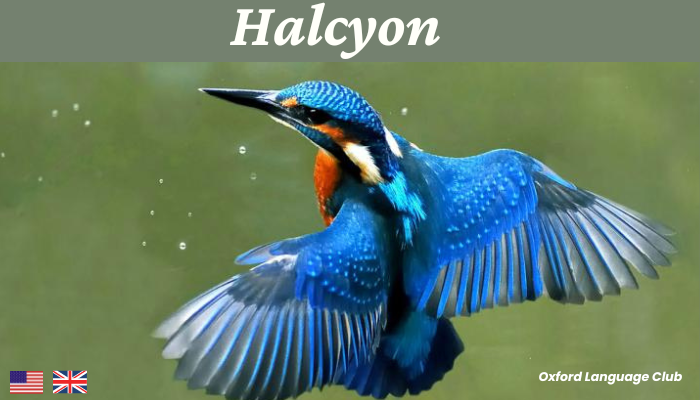


Halcyon
'Halcyon' is an elegant term with roots embedded deeply in ancient Greek mythology. Originating from 'Alkyone', the daughter of Aeolus, the wind god, it tells a tale of love and transformation. Upon the death of her husband, Ceyx, Alkyone threw herself into the sea in despair. Out of pity, the gods transformed the couple into kingfishers, known as 'halcyon birds'. Ancient Greeks believed that these birds made nests on the calm seas during the 'halcyon days', a period of tranquility amidst winter storms, reflecting the word's modern definition of peace and serenity.
Today, 'halcyon' has evolved to signify a nostalgic perfection, often used to refer to an idealized past. For instance, in the sentence, "She fondly recalled her halcyon days of childhood", it represents a time of bliss and innocence. In another context, as in, "He yearns for the halcyon era of the 1960s", it expresses a longing for a perceived golden age.
The term 'halcyon' paints a picture of idyllic tranquility and contentment, expertly blending mythology, history, and linguistic evolution. Despite its ancient roots, it continues to find relevance in modern parlance, reminding us of the enduring power of words.
June, 2023
Posted by Oxford Language Club